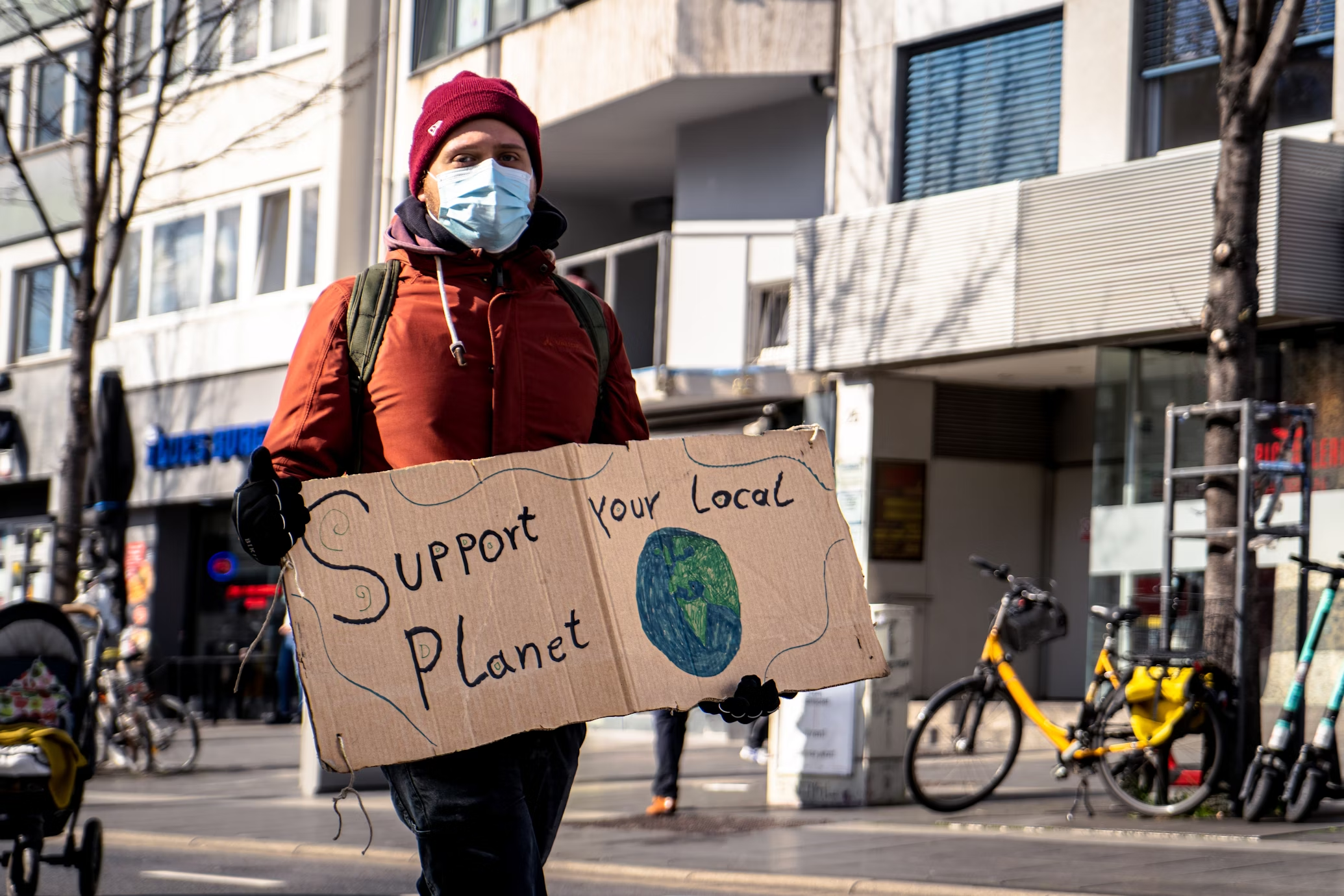Table of Contents
Bangalore, also known as the “Garden City of India,” is not only recognized for its technological advancements but also for its growing commitment to sustainability. As the city grapples with rapid urbanization, it faces significant environmental challenges, including air pollution, waste management, and water scarcity. However, Bangalore’s residents, organizations, and government are actively embracing eco-friendly practices and initiatives to foster a more sustainable future. This blog post explores Bangalore’s efforts towards sustainability and offers practical tips for residents to adopt eco-friendly living.
Eco-Friendly Initiatives in Bangalore
1. Waste Management and Recycling Programs
a. 2Bin1Bag Campaign
The 2Bin1Bag campaign is a waste segregation initiative that encourages residents to separate their waste into three categories: wet waste, dry waste, and sanitary waste. Wet waste, such as food scraps, is composted, while dry waste, including plastics and paper, is sent for recycling. Sanitary waste is disposed of separately to ensure hygienic handling. This initiative has significantly improved waste management in Bangalore, reducing the amount of waste sent to landfills.
b. Dry Waste Collection Centers (DWCCs)
Dry Waste Collection Centers are established across Bangalore to facilitate the collection, segregation, and recycling of dry waste. These centers are managed by non-governmental organizations (NGOs) and social enterprises, creating employment opportunities while promoting recycling. Residents are encouraged to drop off their dry waste at these centers, where it is sorted and sent to recycling facilities.
2. Water Conservation Efforts
a. Rainwater Harvesting
With Bangalore facing water scarcity, rainwater harvesting has become a crucial practice. The city has made it mandatory for buildings with an area of more than 2,400 square feet to install rainwater harvesting systems. These systems collect and store rainwater, which can be used for various purposes, reducing dependency on municipal water supply. Many residents and businesses have embraced this practice, significantly contributing to water conservation.
b. Lake Rejuvenation Projects
Bangalore was once known for its numerous lakes, but many have deteriorated due to urbanization. In recent years, there has been a concerted effort to rejuvenate these lakes. Organizations like the Bangalore Development Authority (BDA) and NGOs are working to restore and maintain lakes, ensuring they serve as vital water sources and biodiversity hubs. Projects include desilting, planting native vegetation, and creating walkways for public use.
3. Green Transportation Initiatives
a. Namma Metro
Bangalore’s Namma Metro is a modern, rapid transit system designed to reduce traffic congestion and carbon emissions. The metro network is expanding, providing a reliable and eco-friendly mode of transportation for residents. By encouraging the use of public transport, the metro helps decrease the number of private vehicles on the road, contributing to cleaner air and reduced greenhouse gas emissions.
b. Cycle Sharing Programs
Cycle sharing programs, such as Yulu and Bounce, have gained popularity in Bangalore. These programs offer electric and pedal bikes for short-distance travel, providing an eco-friendly alternative to motor vehicles. The bikes can be easily rented through mobile apps, making them convenient for last-mile connectivity. Cycle sharing not only reduces carbon emissions but also promotes a healthier lifestyle.
4. Renewable Energy Adoption
a. Solar Power Initiatives
Bangalore is harnessing the power of the sun through various solar energy initiatives. The city promotes the installation of solar panels on rooftops of residential and commercial buildings. Solar energy reduces dependency on fossil fuels and decreases electricity bills. Government subsidies and incentives make it easier for residents to adopt solar power, contributing to the city’s renewable energy goals.
b. Wind Energy Projects
In addition to solar power, Bangalore is also exploring wind energy. The Karnataka Renewable Energy Development Limited (KREDL) is spearheading wind energy projects across the state, including areas near Bangalore. These projects aim to diversify the city’s energy mix and reduce reliance on non-renewable sources.

Tips for Sustainable Living in Bangalore
1. Reduce, Reuse, Recycle
Adopting the 3Rs—reduce, reuse, and recycle—can significantly minimize waste and its impact on the environment.
a. Reduce
- Avoid single-use plastics by opting for reusable items such as cloth bags, metal straws, and glass containers.
- Be mindful of your consumption patterns and only purchase what you need.
- Reduce water and energy usage by fixing leaks, turning off lights when not in use, and using energy-efficient appliances.
b. Reuse
- Repurpose old items instead of discarding them. For example, use glass jars for storage or turn old clothes into cleaning rags.
- Donate items you no longer need, such as clothes, books, and electronics, to charities and thrift stores.
c. Recycle
- Segregate your waste into wet, dry, and sanitary categories and dispose of them properly.
- Utilize local recycling programs and drop off recyclable materials at designated centers.
- Compost organic waste to create nutrient-rich soil for your garden.
2. Conserve Water
Water conservation is crucial in a city facing water scarcity. Here are some tips to save water:
- Install low-flow fixtures and aerators on taps and showerheads to reduce water usage.
- Use a bucket instead of a hose to wash your car or water your plants.
- Collect and reuse greywater from sinks and showers for gardening and cleaning purposes.
- Fix leaks promptly to prevent water wastage.
3. Adopt Green Transportation
Opting for eco-friendly modes of transportation can reduce your carbon footprint and contribute to cleaner air.
- Use public transport, such as buses and the metro, instead of private vehicles.
- Participate in carpooling to reduce the number of vehicles on the road.
- Utilize cycle-sharing programs for short-distance travel and last-mile connectivity.
- Consider walking for short trips to nearby destinations.
4. Support Local and Sustainable Products
Choosing locally sourced and sustainable products can reduce environmental impact and support the local economy.
- Purchase fruits, vegetables, and other products from local farmers’ markets.
- Choose eco-friendly and sustainable brands that prioritize ethical practices and minimal environmental impact.
- Avoid products with excessive packaging and opt for those with biodegradable or recyclable packaging.
5. Embrace Renewable Energy
Switching to renewable energy sources can significantly reduce your carbon footprint.
- Install solar panels on your rooftop to harness solar energy for your household needs.
- Use solar-powered devices, such as water heaters and outdoor lights.
- Support initiatives and policies that promote renewable energy adoption in your community.
6. Create Green Spaces
Green spaces not only enhance the beauty of your surroundings but also improve air quality and support biodiversity.
- Plant trees, shrubs, and flowers in your garden or community spaces.
- Participate in tree-planting drives and community gardening projects.
- Maintain indoor plants to improve indoor air quality and create a healthier living environment.
7. Educate and Advocate
Raising awareness and advocating for sustainability can create a ripple effect in your community.
- Educate your family, friends, and neighbors about the importance of sustainable living.
- Participate in local environmental groups and initiatives.
- Advocate for policies and practices that promote sustainability at the community and city levels.

Inspiring Stories of Sustainable Practices in Bangalore
1. The Ugly Indian
The Ugly Indian is a citizen-driven initiative that aims to clean and beautify public spaces in Bangalore. Volunteers, known as “Ugly Indians,” undertake spot-fixing drives to clean, paint, and revamp dirty and neglected areas. Their efforts have transformed numerous public spaces into clean and attractive areas, fostering a sense of community pride and responsibility.
2. Daily Dump
Daily Dump is a social enterprise that promotes composting as a means to manage organic waste. They offer a range of composting products and services to help residents turn kitchen waste into nutrient-rich compost. By encouraging composting, Daily Dump reduces the amount of waste sent to landfills and promotes sustainable waste management practices.
3. Sustainable Menstruation Bangalore Project (SMBP)
The Sustainable Menstruation Bangalore Project (SMBP) advocates for sustainable and eco-friendly menstrual practices. They promote the use of menstrual cups, cloth pads, and biodegradable sanitary products, reducing the environmental impact of disposable sanitary products. SMBP also conducts workshops and awareness campaigns to educate women about sustainable menstrual practices.
4. Reap Benefit
Reap Benefit is an organization that empowers young people to solve local environmental and civic issues. Through their “Solve Ninjas” program, Reap Benefit engages students in identifying and addressing sustainability challenges in their communities. The program encourages innovation and problem-solving, fostering a generation of environmentally conscious citizens.
5. Jhatkaa.org
Jhatkaa.org is a digital advocacy organization that campaigns for various social and environmental issues, including air pollution, waste management, and sustainable development. By leveraging digital tools and community engagement, Jhatkaa.org raises awareness and mobilizes citizens to take action for a sustainable future.
Conclusion
Bangalore’s journey towards sustainability is marked by a collective effort from its residents, organizations, and government. The city’s eco-friendly initiatives and practices demonstrate a strong commitment to addressing environmental challenges and creating a sustainable future. By adopting simple yet impactful sustainable living practices, residents can contribute to this collective effort and make a positive difference.
As Bangalore continues to grow and evolve, it is crucial for everyone to play their part in promoting sustainability. From reducing waste and conserving water to supporting renewable energy and creating green spaces, every action counts. By embracing sustainable living, we can ensure that Bangalore remains a vibrant, healthy, and resilient city for generations to come.
So, let’s take inspiration from Bangalore’s eco-friendly initiatives and start making sustainable choices in our daily lives. Together, we can create a greener, cleaner, and more sustainable Bangalore.
